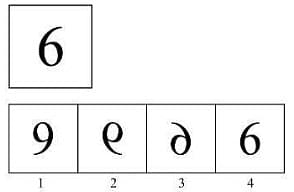Which ONE of the following languages is accepted by a deterministic pushdown automaton?
Show Hint
- Any regular language.
- Any context-free language.
- Any language accepted by a non-deterministic pushdown automaton.
- Any decidable language.
The Correct Option is A
Solution and Explanation
- Every regular language is accepted by a DPDA since regular languages can be recognized by finite state automata, which are a subset of DPDAs. DPDAs can process regular languages in a deterministic manner, just like finite state machines.
- However, not all context-free languages (CFLs) can be accepted by a DPDA. For example, the language \( L = \{a^n b^n c^n \mid n \geq 1\} \) is context-free but cannot be recognized by any DPDA because it requires non-deterministic behavior to be accepted.
- A non-deterministic pushdown automaton (NPDA) can accept a broader class of context-free languages than a DPDA. The languages accepted by an NPDA include all deterministic context-free languages, but an NPDA can recognize languages that a DPDA cannot due to its ability to explore multiple possibilities simultaneously.
- Decidable languages include those from the Chomsky hierarchy that can be recognized by a Turing machine. However, a DPDA is strictly weaker than a Turing machine in terms of computational power, as there are languages that a DPDA cannot recognize but a Turing machine can.
Since a DPDA can accept all regular languages, the correct answer is (A) Any regular language.
Top Questions on Age
Let $\Sigma = \{a, b, c\}$. For $x \in \Sigma^*$, and $\alpha \in \Sigma$, let $\#\alpha(x)$ denote the number of occurrences of $\alpha$ in $x$. Which one or more of the following option(s) define(s) regular language(s)?
- Arjun is twice as old as Shreya. Five years ago, his age was three times Shreya's age. Find the sum of their present ages:
- Choose the correct mirror image of the following:

- A child was born on 13th January 1976 which was a Tuesday. What day of the week will be the childs birth day in the year 1986?
- Beena got married 8 years ago. Today, her age is \(\frac {11}{4}\) times her age at the time of marriage. If her daughter‘s age is \(\frac {1}{10}\) times her age, then her daughter‘s age is:
Questions Asked in GATE CS exam
In a 4-bit ripple counter, if the period of the waveform at the last flip-flop is 64 microseconds, then the frequency of the ripple counter in kHz is ______________. {(Answer in integer)}
- GATE CS - 2025
- Flip-Flop
Consider the following C code segment:
int x = 126, y = 105; do { if (x > y) x = x - y; else y = y - x; } while (x != y); printf("%d", x);The output of the given C code segment is ____________. (Answer in integer)
- GATE CS - 2025
- Programming in C
The following two signed 2’s complement numbers (multiplicand \( M \) and multiplier \( Q \)) are being multiplied using Booth’s algorithm:
Multiplicand (\( M \)) Multiplier (\( Q \)) 1100 1101 1110 1101 1010 0100 1010 1010 The total number of addition and subtraction operations to be performed is __________. (Answer in integer)
- GATE CS - 2025
- Complementation
The maximum value of \(x\) such that the edge between the nodes B and C is included in every minimum spanning tree of the given graph is __________ (answer in integer).

- GATE CS - 2025
- Programming and Data Structures
Consider the following C program

The value printed by the given C program is __________ (Answer in integer).- GATE CS - 2025
- Programming in C